Enhanced Care Management (ECM) Provider Information
Enhanced Care Management (ECM) is a Medi-Cal benefit administered by DHCS.
Core service components are delivered mostly face to face with members through community-based ECM providers.
ECM-eligible members will be assigned an ECM provider and a lead care manager who will assess members to best support their health care and social needs.
To refer a member to ECM services, visit our ECM/CS referral page.
Core components of ECM services
Who is eligible to receive ECM services?
ECM will be implemented in stages by eligible populations of focus.
| Status | Populations of Focus |
|---|---|
| Now available |
|
More information about populations of focus can be found below in the ECM Criteria section. For detailed definitions, please refer to the DHCS ECM Policy Guide.
ECM criteria
Alliance members who match the following criteria under a population of focus are eligible for ECM services.
Justice Involved (JI) Liaison Contact Information
Alliance ECM team
Phone: 831-430-5512
Email [email protected]
Interested in becoming an ECM or CS provider? Email us at [email protected].


